
Gunmetal Shell Mold Casting
850 Per Kilogram
500 Kilogram (MOQ)
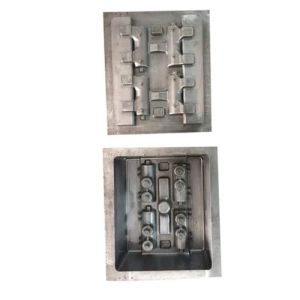
shell moulding casting
85 Per Kilogram
100 Kilogram (MOQ)
Best Deals from Shell Moulding Casting

shell moulded casting
145 Per Kilogram
100 Kilogram (MOQ)
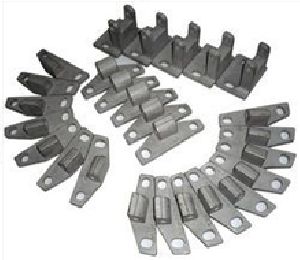
shell mould casting
Get Price Quote
The metal pattern is first heated at a temperature of 200 0 C / 392 0 F.Then covered with a mixture of sand and thermo set plastic. It forms a skin of sand/ plastic mixture of about 3.5 mm (0.125 inch) which adheres to the pattern. The shell mold is formed after the skin gets removed from the pattern. The two halved of the shell mold are secured together and the metals id poured in the shell to form the part. Once the metals solidified, the shell is broken. Features of Shell mold Casting: Good Surface Finish : 1.25µm to3.75µm (50µin to 150µin)rms dimensional Tolerance of 0.5 % Size Limits : 30 g to 12 kg (1 oz to 25lb) Minimum Thicknesses : As low as 1.5mm (0.062 in) to 6.25mm (0.25 in)depending on the material Superior Machining Qualities : As it has soft skins and hard or dense interiors Draft Allowance : Typically 10 C AppliSand Mouldion: The materials that can be used with this process are aluminum, cast irons, and copper alloys. Parts made can be connecting rods, Gear Housings, Lever arms etc.

shell mold casting
Get Price Quote
Our storage facility is laced with all the modern amenities, required for maintaining high quality of the products. Also, we upgrade it on regular intervals to meet defined industry standards. We are a noteworthy name when it comes to Mould For Shell Moulding Process that is the perfect outcome of premium material and advanced processing techniques.
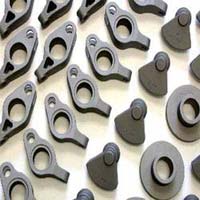
shell moulding casting
Get Price Quote
The aspects of dimensional accuracy and good corrosion resistance define the range of Shell Mould Castings. Being a highly distinguished Manufacturer and Supplier of Shell Mould Castings, the company ensures that the array of the castings is light in weight. The rugged construction makes the Shell Mould Castings ideal for industrial usage, with the company ensuring the timely and safe deliveries at the best prices.

Shell Molding Castings
150 - 250 Per Kilogram
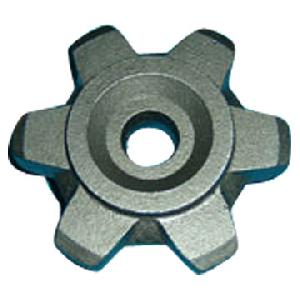
Shell Mould Castings
Get Price Quote
Shell Mould Castings that we offer are manufactured using conventional molding and metal casting process. The mold is formed around a pattern by ramming sand, mixed with the proper bonding agent, onto the metal or wood pattern. Molten metal is poured into the mold, and after it has solidified the mold is broken and castings are removed for secondary process and final finishing. The name of our company is listed among the prominent Manufacturers, Exporters and Suppliers of Shell Mould Castings. Buyers prefer to buy Shell Mould Castings from us as we make them available at the most reasonable prices. Advantages Better surface finish Better dimensional tolerances. Reduced Machining. Less foundry space required. Semi skilled operators can handle the process. The process can be mechanized. Disadvantages The raw materials are relatively expensive. The process generates noxious fumes which must be removed. The size and weight range of castings is limited. Applications Crankshaft fabrication Steel casting parts, fittings Moulded tubing fabrication Hydraulic control housing fabrication Automotive castings (cylinder head and ribbed cylinder fabrication).
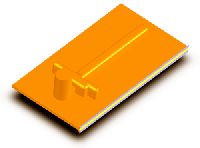
shell moulding casting
Get Price Quote
Shell mold casting process is a technique in which liquid metal is poured into a cavity formed from a sand mixture. Shell molding process offers better surface finish, better dimensional tolerances, and higher throughput due to reduced cycle times and the fact that the process can be automated. These qualities of precision can be obtained in a wider range of alloys and with greater flexibility in design than die-casting and at a lower cost than investment casting.
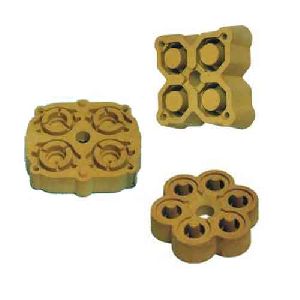
shell moulding
Get Price Quote
ell molding, also known as shell-mold casting, is an expendable mold casting process that uses a resin covered sand to form the mold.Shell moulding is similar to sand moulding except that a mixture of sand and 3-6% resin holds the grains together. Shell moulding also uses sand with a much smaller grain than green-sand. Set-up and production of shell mould patterns takes weeks, after which an output of 5-50 pieces/hr-mould is attainable. Aluminium and magnesium products average about 13.5 kg as a normal limit, but it is possible to cast items in the 45-90 kg range. Shell mould walling varies from 3-10 mm thick, depending on the forming time of the resin.Shell moulding is used for small parts that require high precision. Some examples include gear housings, cylinder heads and connecting rods.It is also used to make high-precision moulding cores. Compared to sand casting this process makes complex parts be cast with better dimensional accuracy, a higher productivity rate, and lower labor requirements. less labor. There are a dozen different stages in shell mould processing that include: 1. Initially preparing a metal-matched plate 2. Mixing resin and sand 3. Heating pattern, usually to between 505-550K 4. Inverting the pattern 5. Curing shell and baking it 6. Removing investment 7. Inserting cores 8. Repeating for other half 9. Assembling mould10. Pouring mould11. Removing casting12. Cleaning and trimming.The sand-resin mix can be recycled by burning off the resin at high temperatures.

shell moulding casting
Get Price Quote
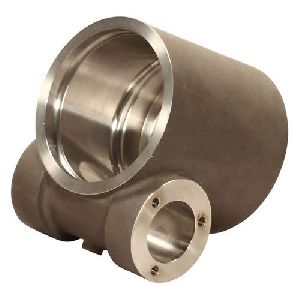
shell mould casting
Get Price Quote

Shell Moulded Castings
Get Price Quote
We offer Shell Moulded Castings. Shell Moulded Castings of SG Iron & Gray Iron weighing from 300 gms to 40 kgs.
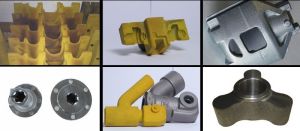
shell moulding casting
Get Price Quote
We prepare sand as per the ratio to action the shell mould cakes. Quality shells are obtained by the use of graded sand with the mixture of exact ratio. Shell mould sand are pre-heated and heated to the appropriate temperature to obtain the flawless castings. Silicon ore are used for taking shell core. We offer shell mould process for the component of good surface finish, thus reduce machining process. We manufacture shell mould process in steel, grey irons, ductile iron, aluminium, bronze of all grades. Our component weight limit is of 50grams to 30kg in shell mould process.

shell moulding casting
Get Price Quote
We are the main supplier of this product.

shell moulding casting
Get Price Quote
Shell molding, also known as shell-mold casting is an expendable mold casting process that uses a resin covered sand to form the mold. As compared to sand casting, this process has better dimensional accuracy, a higher productivity rate, and lower labor requirements. It is used for small to medium parts that require high precision. Shell molded items include gear housings, cylinder heads and connecting rods. It is also used to make high-precision molding cores. We offer quality patterns for shell molding.
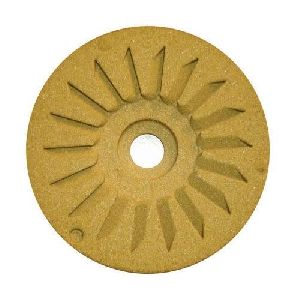
shell mold casting
270 Per Kilogram

shell moulding casting
Get Price Quote
Shell Moulded Casting permits the utilization of both ferrous and non-ferrous metals; most commonly uses cast iron, carbon steel, amalgam steel, stainless steel, aluminum combinations, and copper alloys. These parts can be available in small and medium sizes with high accuracy. Shell Moulded Casting is a metal casting process similar to sand casting process, in that melting of metal is poured into an expendable mold. Examples of Shell Moulded Casting items include gear housings, cylinder heads etc… For the process of shell moulded casting a machine called a shell molding machine is used that heats the pattern by applying the sand mixture, and bakes the shell. This is a simpile affordable technique suggested by our Shell Moulded Casting Suppliers which reduces cleaning cost also.
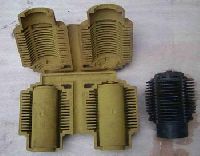
shell moulding casting
Get Price Quote
Shell molding, also known as shell-mold casting is an expendable mold casting process that uses a resin covered sand to form the mold. As compared to sand casting, this process has better dimensional accuracy, a higher productivity rate, and lower labor requirements. It is used for small to medium parts that require high precision.
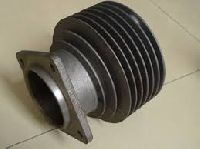
shell moulding casting
Get Price Quote
The shell molding process employing synthetic thermosetting resin mixed with high grade silica sand and is a method of producing sand castings to very much closer tolerances. It is, of course, a machine molding process. The pattern plates used for this process must be of metal and capable of withstanding temperatures of 250-300°C. The amount of “draw” required for these patterns can be greatly reduced and rapping the pattern is not used for ejecting the mould from the pattern plate.